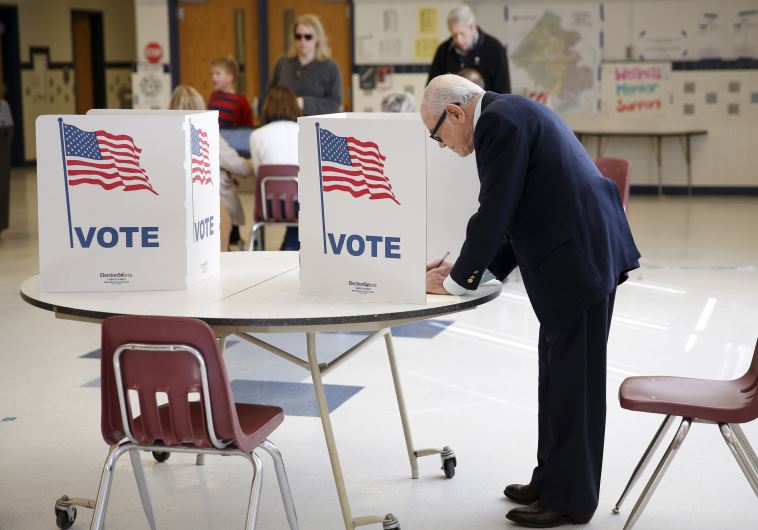US Reform Jewish leaders lead fight to protect voter rights
Reform movement teams up with civil rights movements, target areas notorious for voter suppression.
 A voter fills out his ballot at Sleepy Hollow Elementary School in Falls Church, Virginia.(photo credit: KEVIN LAMARQUE/REUTERS)Updated:
A voter fills out his ballot at Sleepy Hollow Elementary School in Falls Church, Virginia.(photo credit: KEVIN LAMARQUE/REUTERS)Updated: